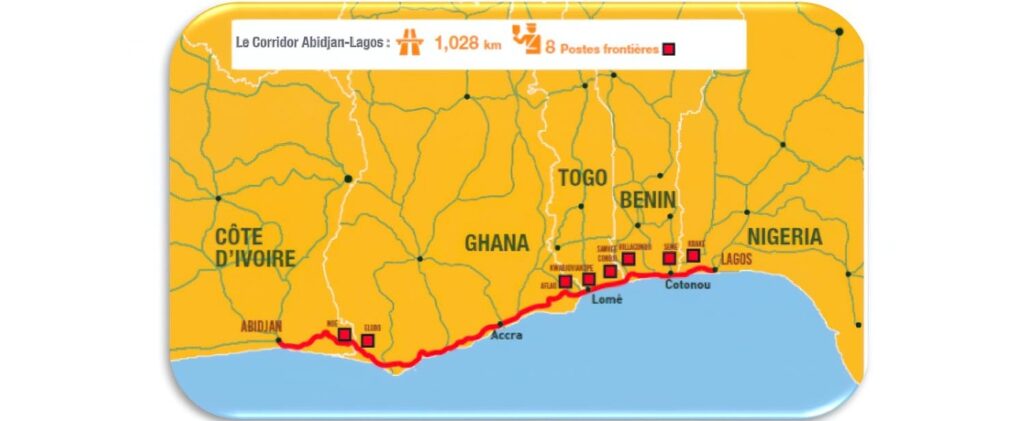The highway will connect Côte d’Ivoire, Ghana, Togo, Benin, and Nigeria, regions that account for 75% of West Africa’s commercial activity.
A 1,028-kilometer project dubbed Abidjan-Lagos Highway Corridor, is slated to begin in 2026 and conclude by 2030, fueled by $15.6 billion in investment interest secured at an older edition of the Africa Investment Forum, an initiative led by the African Development Bank (AfDB), and eight founding partners. The transport sector in this corridor contributes between 5% and 8% to the region’s gross domestic product (GDP).

By 2050, the project is expected to serve 173 million urban residents, enhancing connectivity and economic integration across the subregion.
The highway will feature four to six lanes, expanding to eight in Lagos, Nigeria’s commercial capital. Beyond its benefits, the project is a cornerstone of AfDB’s Spatial Development Initiative which has outlined investments of $6.8 billion in sectors such as renewable energy, manufacturing, and agriculture. These interventions are projected to generate $16 billion in economic impacts and create over 230,000 direct and indirect jobs.
“The Abidjan-Lagos Highway is more than a road; it’s a lifeline for regional trade and integration,” says Nigerian exporter Oluwaseun Obilana to FORBES AFRICA. “For exporters like me, it means reduced transit times, fewer bottlenecks, and better access to regional markets, particularly in Côte d’Ivoire and Ghana.”
Loading...
Despite its potential and the AfDB’s investment of $25 million in the preparatory phase, Nigerian analyst Moses Adeolubodun calls for sustainable planning. “While this project promises economic transformation, it must be accompanied by investments in governance and maintenance structures,” Adeolubodun says to FORBES AFRICA. “Ensuring the highway’s longevity will depend on effective management and the alignment of national priorities.”
Loading...
